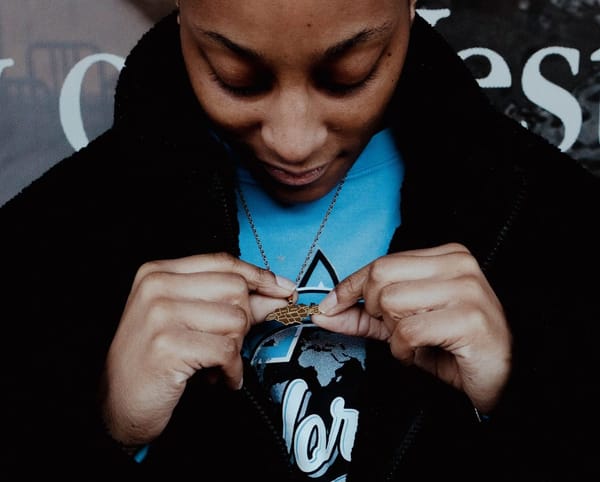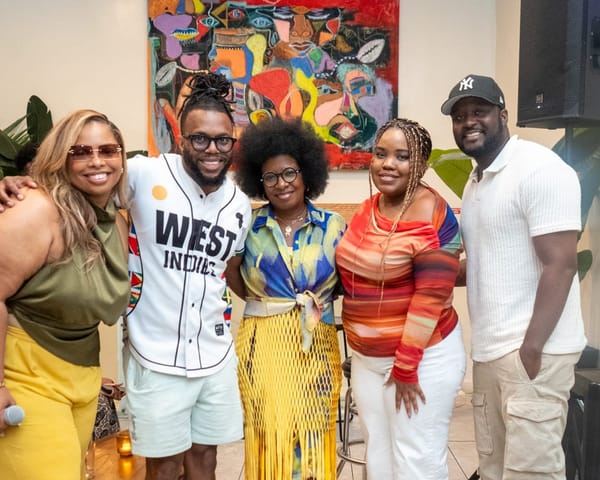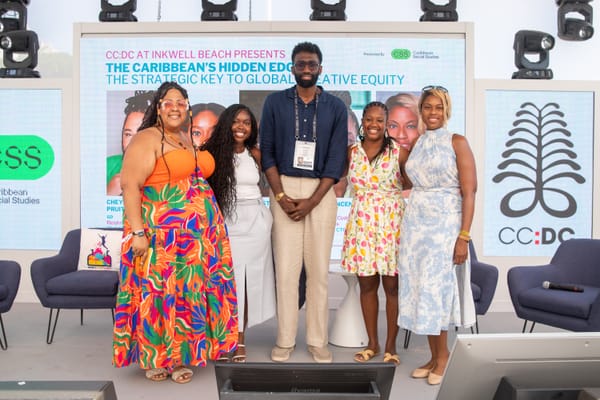Why the Caribbean Diaspora Is Key to Unlocking a Thriving Caribbean Creative Economy

For decades, the Caribbean has been a cultural powerhouse. Its music, style, literature, and language have circled the globe. Yet behind this global resonance lies a persistent paradox. While the region produces extraordinary creative talent, it lacks the systems needed to sustain a thriving creative economy. Talent leaves. Investment lags. Infrastructure falters. And efforts to formalize the sector often fall short.
The solution is not in importing external models or waiting on international aid. It lies in activating a strategic resource that already exists: the global Caribbean creative diaspora.
The Problem: Talent Leaves, Systems Stall
The Caribbean is full of talent. But talent needs more than passion. It needs pipelines. While governments across the region have launched cultural policies, festivals, and development grants, many of these initiatives are underfunded, fragmented, or disconnected from the global marketplace. Creative careers are still met with skepticism, and access to production facilities, training programs, and distribution platforms remains limited.
Traditional consulting firms have occasionally stepped in to guide policy development, but many lack the cultural proximity and lived insight required to make lasting change. They offer frameworks optimized for large, urban economies, not small island developing states shaped by layered identities, colonial legacies, and informal economies.
The Solution: Diaspora as Catalyst
Caribbean creatives abroad are already solving for the challenges the region faces. When given opportunity, they do not just perform — they lead.
- Rihanna, raised in Barbados, redefined beauty and fashion by building a global brand anchored in cultural intelligence and radical inclusion.
- Melina Matsoukas, with Caribbean heritage, directed Lemonade and Insecure, helping shift visual storytelling in popular culture.
- Patrick Bennett, born in Trinidad and raised in Canada, is now Executive Creative Director at Jack Morton Worldwide, leading campaigns for Nike, Coca-Cola, and Adidas.
These creatives have mastered the tools of global communication while staying rooted in Caribbean insight. Their success is not despite their Caribbean identity. It is because of it.
Why the Diaspora Offers What Traditional Consulting Cannot
Diaspora creatives bring a rare combination of global fluency and cultural intimacy. They understand the tensions between modernity and tradition, formal and informal economies, identity and aspiration. This enables them to:
- Translate Caribbean cultural value into scalable creative IP
- Mentor and support regional talent with real-world strategies
- Build global partnerships grounded in authenticity, not charity
- Design inclusive systems that reflect how creativity actually works in the region
Unlike traditional consultants, their work is not transactional. It is relational. Their return is rooted in purpose — a shared commitment to cultural preservation, economic empowerment, and regional pride.
CSS: Closing the Loop
This is the founding vision of Caribbean Social Studies (CSS). Recognizing the fragmentation across the region and the brilliance dispersed throughout its diaspora, CSS was created to bridge the gap. It is a platform for reconnection, collaboration, and strategic alignment.
CSS convenes creatives, technologists, and policy leaders to design new models for regional growth. Through editorial content, thought leadership, panel discussions, and behind-the-scenes consulting, CSS is making it easier for the Caribbean to see itself not just as culturally rich, but economically strategic.
By connecting local talent with global expertise, CSS activates a distributed model of development that doesn't rely on centralization. It treats diaspora not as loss, but as living infrastructure.
What a Flourishing Creative Industry Could Mean
Activating the diaspora loop could transform the Caribbean economy. Here is what a robust creative industry could offer:
- Scalable Job Creation: From fashion to film to animation, the creative sector can absorb and empower the region’s growing youth population.
- Cultural IP Development: Local stories can become global exports, shifting the region from content contributor to rights holder.
- Tourism Reinvention: Experiences like art fairs, residencies, and creative festivals can diversify tourism beyond sun and sand.
- Narrative Power: The Caribbean can shape the global conversation — not from the sidelines, but from the center.
Conclusion: The Loop Is the Strategy
The diaspora is not a brain drain. It is a power circuit.
It is a network of high-performing, culturally grounded professionals ready to invest back into the region — not only with capital, but with context. With insight. With strategic creativity.
Caribbean Social Studies exists to make this loop visible and actionable. It is the connector, the amplifier, and the facilitator of a region ready to build systems rooted in excellence.
The Caribbean is not a region of deficit. It is a region of creative abundance. What it needs is coordination, vision, and belief — from within and from those who carry the Caribbean with them across the world.
The diaspora loop is not a fix. It is the future.




